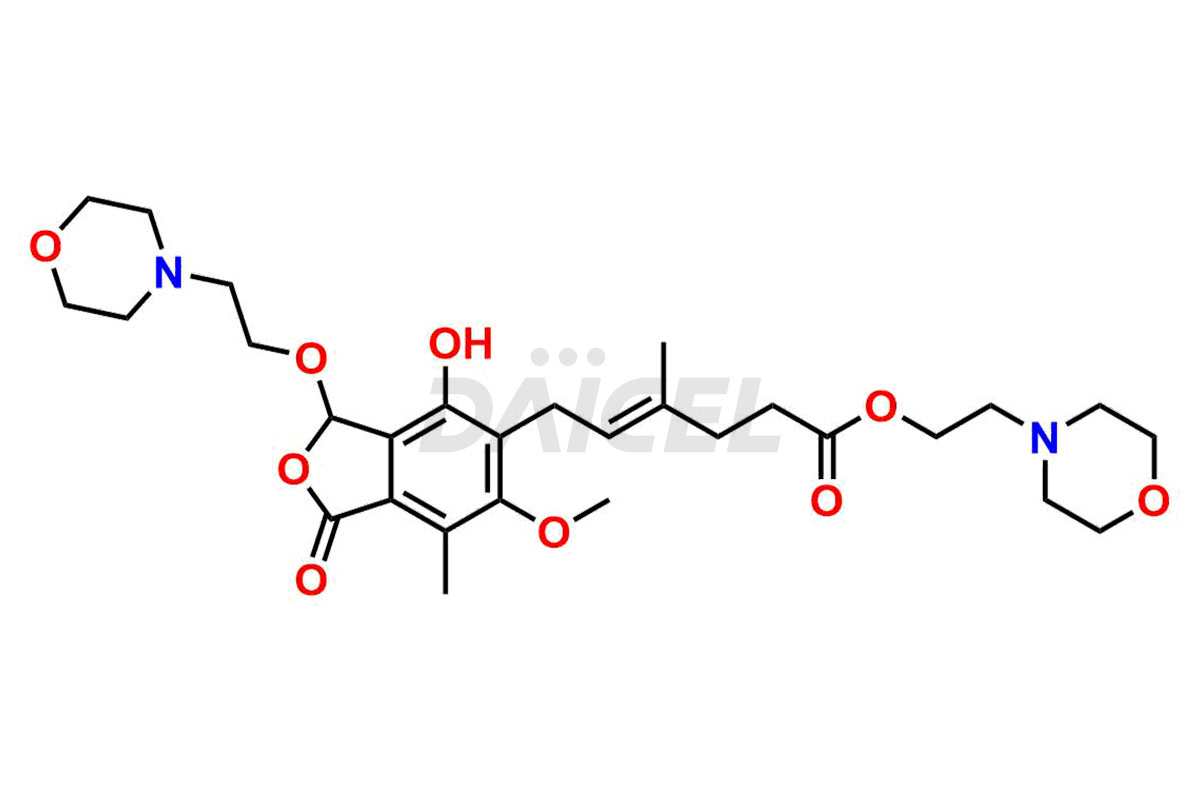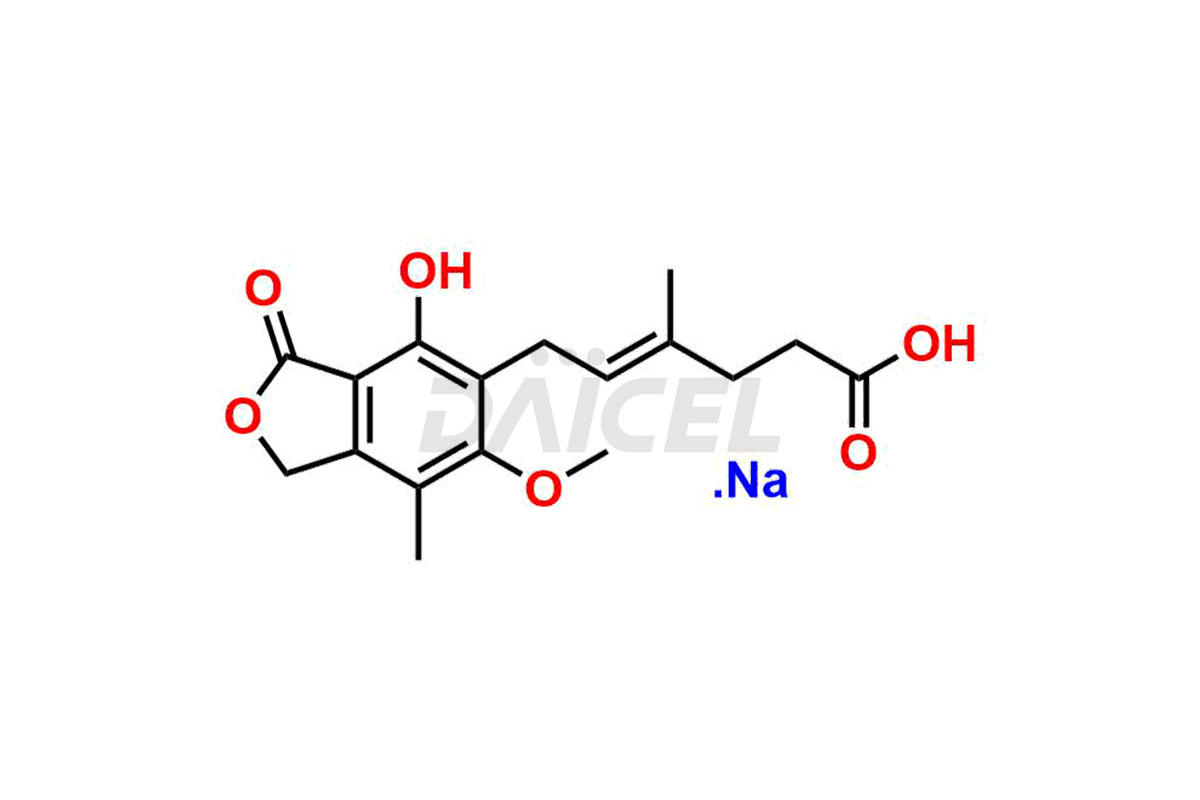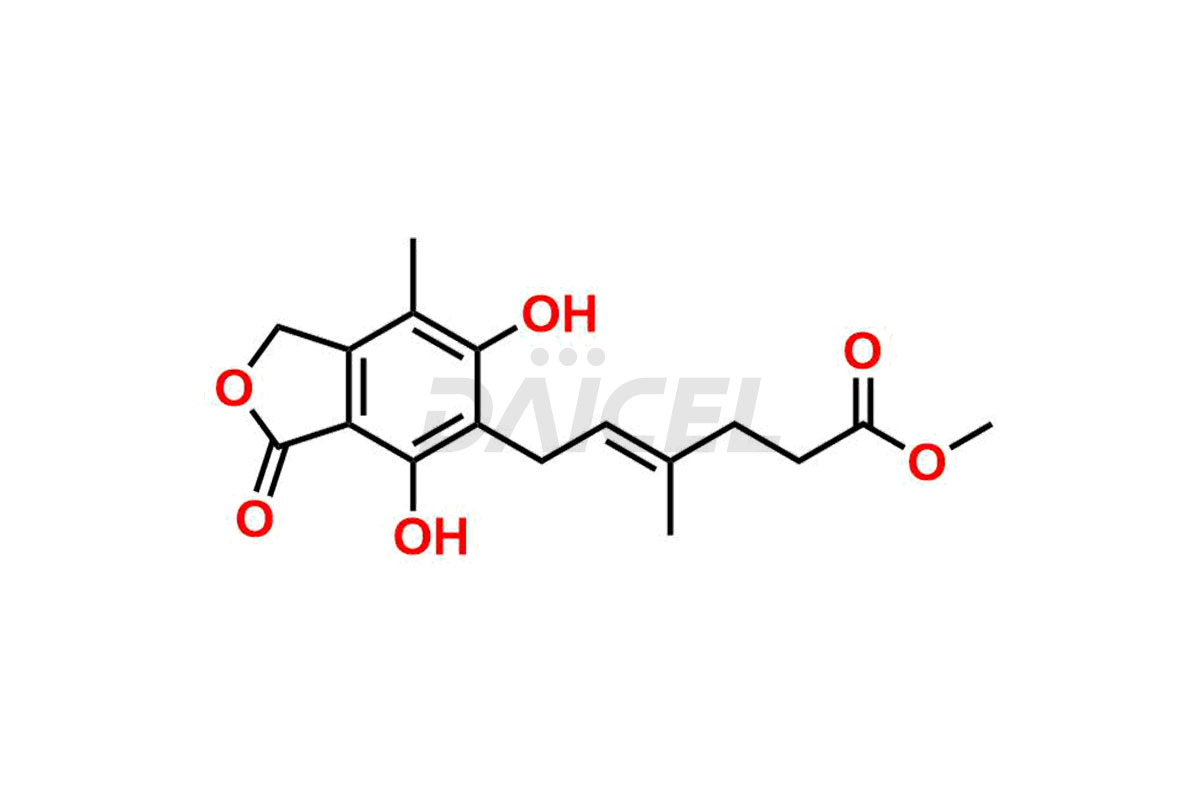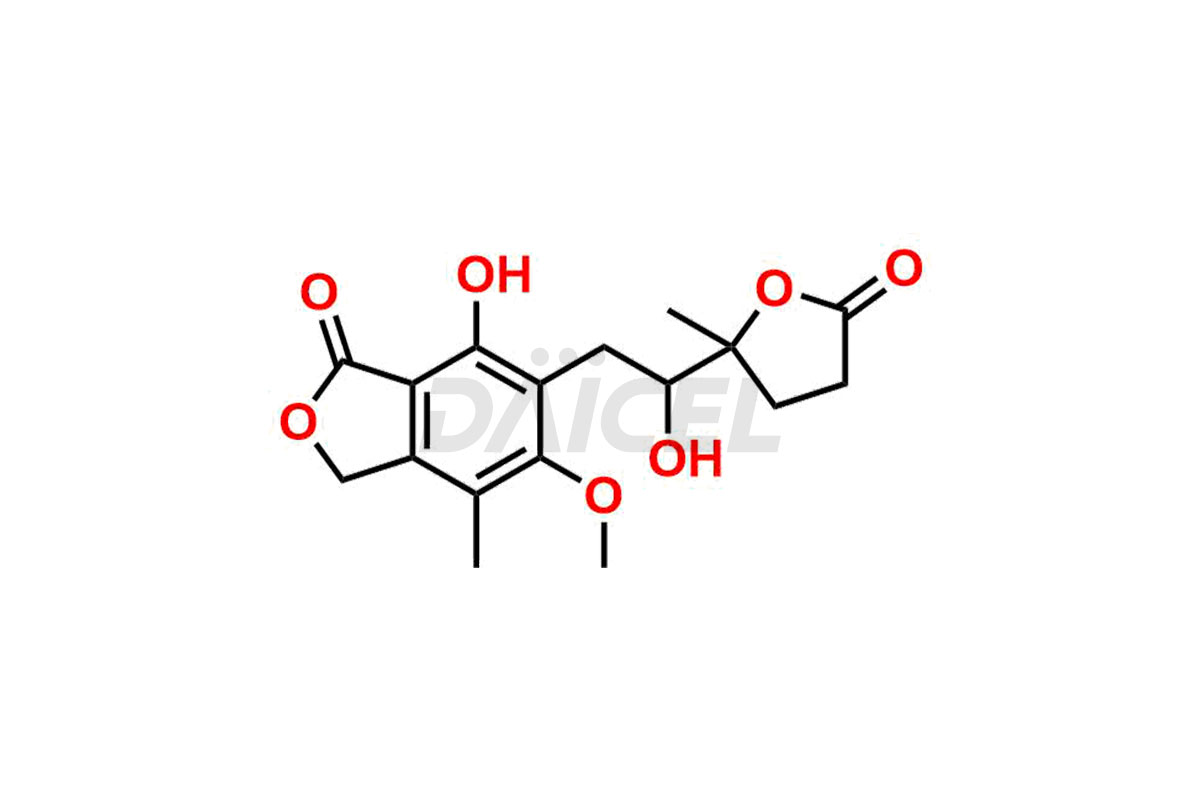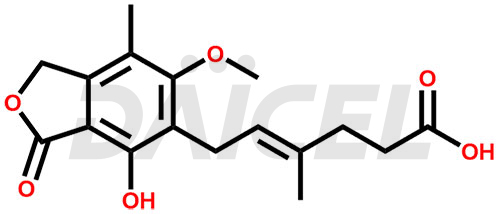Mycophenolic acid
General Information
Mycophenolic Acid Impurities and Mycophenolic Acid
Daicel Pharma is a trusted provider of quality Mycophenolic Acid impurity standards, including Mycophenolate Mofetil Related impurity, Mycophenolic Acid (Mycophenolate sodium), Mycophenolic Acid O-Desmethyl Methyl Ester, Mycophenolic Hydroxy lactone and more. They are crucial in evaluating the quality, stability, and safety of the active pharmaceutical ingredient, Mycophenolic Acid. Furthermore, Daicel Pharma customizes Mycophenolic Acid impurities to meet client specifications. With global shipping capabilities, these impurities can be conveniently delivered to customers worldwide, providing unparalleled convenience.
Mycophenolic Acid [CAS: 24280-93-1] is a member of the class of 2-benzofurans and is an immunosuppressive agent.
Mycophenolic Acid: Use and Commercial Availability
Mycophenolic acid is a medication primarily used in immunosuppression to prevent organ rejection in patients undergoing organ transplantation. It works by suppressing the activity of the immune system, reducing the risk of the body attacking and rejecting the transplanted organ. Mycophenolic acid also treats autoimmune diseases, such as lupus nephritis and vasculitis.
Mycophenolic Acid is available under the brand name, Myfortic, which contains the active ingredient Mycophenolic Acid.
Mycophenolic Acid Structure and Mechanism of Action
The chemical name of Mycophenolic Acid is (4E)-6-(1,3-Dihydro-4-hydroxy-6-methoxy-7-methyl-3-oxo-5-isobenzofuranyl)-4-methyl-4-hexenoic acid. Its chemical formula is C17H20O6, and its molecular weight is approximately 320.3 g/mol.
Mycophenolic Acid inhibits inosine monophosphate dehydrogenase (IMPDH).
Mycophenolic Acid Impurities and Synthesis
Mycophenolic Acid impurities can arise during synthesis1 due to the storage or use of specific raw materials and intermediates in manufacturing. These impurities encompass related compounds, degradation products, and process impurities. Stringent quality control measures and analytical methods are crucial to ensure the purity and safety of Mycophenolic Acid for patient use.
Daicel Pharma provides a comprehensive Certificate of Analysis (CoA) for Mycophenolic Acid impurity standards, such as Mycophenolate Mofetil Related impurity, Mycophenolic Acid (Mycophenolate sodium), Mycophenolic Acid O-Desmethyl Methyl Ester, and Mycophenolic Hydroxy lactone. The CoA includes detailed characterization data such as 1H NMR, 13C NMR, IR, MASS, and HPLC purity2. Additionally, upon delivery, a complete 13C-DEPT is also provided. Daicel Pharma possesses the technology and expertise to synthesize any unknown Mycophenolic Acid impurity or degradation product.
References
FAQ's
References
- Birch, Arthur J.; Wright, John Jessen, Total synthesis of mycophenolic acid, Journal of the Chemical Society [Section] D: Chemical Communications, Issue: 14, Pages: 788-9, 1969
- Gainer, Frank E.; Hussey, R. L., Thin-layer chromatography of mycophenolic acid and related compounds, Journal of Chromatography, Volume: 54, Issue: 3, Pages: 446-8, 1971
Frequently Asked Questions
How are Mycophenolic Acid impurities detected and quantified?
Methods such as UPLC can detect impurities in Mycophenolic Acid.
Can Mycophenolic Acid impurities affect patient safety?
Yes, impurities in Mycophenolic Acid can impact patient safety. Depending on their nature and concentration, contaminants can cause adverse effects or reduce the efficacy of the medication.
Which solvents help in the analysis of Mycophenolic Acid impurities?
Acetonitrile or Methanol achieves optimal solubility and separation of Mycophenolic Acid impurities.
What are the temperature conditions required to store Mycophenolic Acid impurities?
Mycophenolic Acid impurities should be stored at a controlled room temperature between 2-8 °C or as indicated on the Certificate of Analysis (CoA).
Note: Products protected by valid patents by a manufacturer are not offered for sale in countries having patent protection. The sale of such products constitutes a patent infringement, and its liability is at the buyer's risk.

